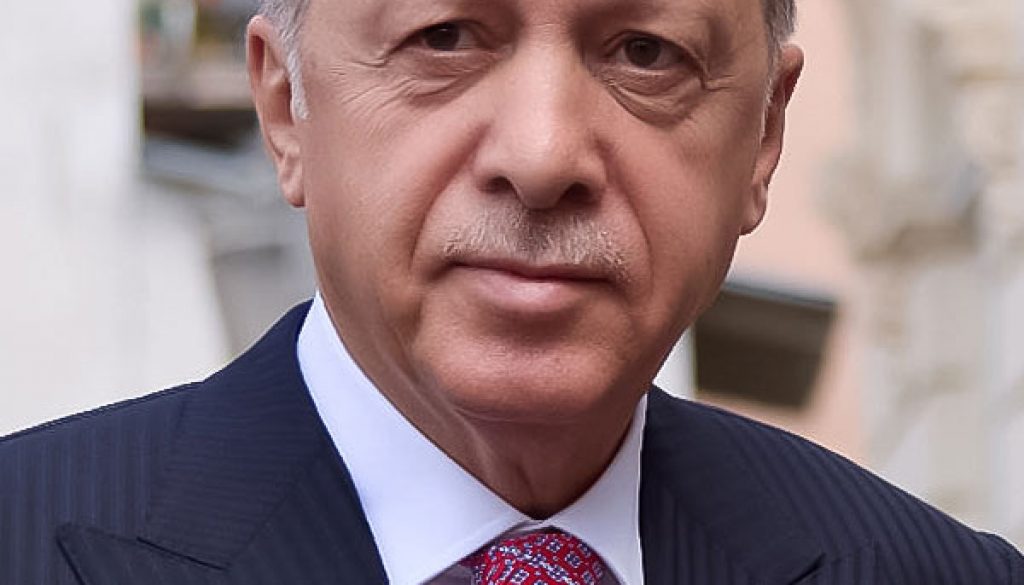Erdogan’s love for Hamas threatens Israel
by Sinan Ciddi
While the vast majority of Turkey’s Western allies were quick to condemn Hamas’s vicious terrorist attacks in Israel, Ankara took an ambiguous approach. President Recep Tayyip Erdogan, a day after the attacks, remarked that it was Turkey’s “responsibility to stand with the oppressed.” This statement was likely delivered with full knowledge on the president’s part that 5,000 rockets had been launched by Hamas into Israel, indiscriminately killing over 1,000 civilians, in addition to further atrocities, including but not limited to the decapitation of Israeli babies.
Erdogan hardened his position on Tuesday, directly criticizing the United States’s decision to position a carrier strike group into the eastern Mediterranean as a precaution against any Iranian military threats toward Israel. In Erdogan’s view, the U.S. military presence would “carry out very serious massacres by striking all of Gaza.” What explains Erdogan’s reticence to condemn Hamas’s barbaric terrorist attacks, and why does he resist supporting Israel in its darkest hour?
FOREIGN AND DOMESTIC CRISES UPEND BIDEN 2020 CAMPAIGN PROMISE OF RETURN TO STABILITY
The answer is straightforward: Erdogan is a champion of Hamas. As a result, Ankara does not recognize Hamas as a terrorist organization. In 2018 Erdogan made his position crystal clear, stating, “Hamas is not a terrorist organization and Palestinians are not terrorists. It is a resistance movement that defends the Palestinian homeland against an occupying power.”
This is reflective of Erdogan’s overall Islamist worldview, which has not changed since his entry into Turkey’s political Islam movement some 40 years ago. Although Turkey is the first Muslim country to recognize the state of Israel, this recognition is not espoused by Turkey’s Islamist movement, which consistently believes that Israel is an illegitimate state in its entirety and that it should be eliminated.
Erdogan’s public remarks following the attacks are comparatively measured — for now. He has spoken by phone with Israeli President Isaac Herzog and offered Ankara’s services as a mediator to de-escalate tensions. This is not because Erdogan has changed his fundamental views on Israel but because he has spent the better part of 2022 trying to rebuild ties with the Jewish state and break Turkey’s regional isolation.
This may be the occasion that he walks away from the rapprochement. Erdogan may be preparing to take a much harder anti-Israeli stance as the Israeli military’s incursion into Gaza intensifies.
If this were to happen, a strong anti-Israeli stance by Ankara would complement Turkey’s existing embrace of Hamas. As an organization, Hamas, together with its senior leadership, is provided recognition, office space, and sanctuary in Turkey. Erdogan maintains warm ties with top Hamas officials, including Ismail Haniyeh and Saleh al Arouri, two of the likely masterminds behind the recent attacks. Ankara has also granted Turkish passports to these people, who have used this benefit to travel internationally to engage in activities including recruitment, fundraising, and presumably coordination with Iran.
The U.S. and its allies should not be under the illusion that Erdogan intends to play the part of an honest broker in this conflict. He is preparing the country for the 2024 local elections, and he needs every chip to fall in his favor if he is to win back the country’s big cities, such as Istanbul and Ankara, which he lost in 2019. A strong anti-Israeli stance could be one rewarding path for him.
This would not be a hard sell for Erdogan. He already espouses deep antisemitic views, and his voter base is vehemently anti-Israeli. Signs of this are already apparent: Two days after the attacks on Israel, Huda-Par, a radical Islamist political party, carried out a pro-Hamas rally outside Israel’s Consulate in Istanbul. This is significant because Huda-Par was and is a member of Erdogan’s electoral “People’s Alliance,” which got Erdogan reelected in July. Additionally, the Turkish government has rarely allowed any public demonstrations to take place in Turkey since 2013. The pro-Hamas rally is definitely an outlier and in keeping with the sentiments of Erdogan’s core constituency.
Erdogan is likely keeping a close eye on Israel’s building military response against Hamas. We should not be surprised if Ankara performs another foreign policy U-turn and abandons its lukewarm rapprochement with Israel. It would not be the first time.
This articled was published in Washington Examiner on 10/12/23
